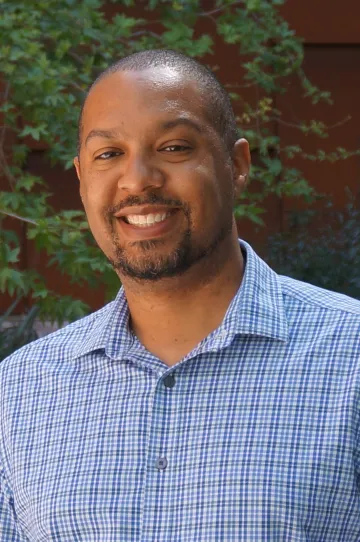When
Presenter
Dr. Michael Johnson
Associate Professor, Immunobiology, The University of Arizona
Abstract
The Johnson Laboratory focuses on how metals impact biology. Roughly 40% of proteins use metals which poses a challenge for bacteria trying to reside in the host. This process is further complicated by certain metals that the host routinely uses, such as copper, are toxic to invading pathogens; a fact that the host takes advantage of to kill bacteria. In this talk, I will focus on how copper is toxic to invading pathogens, how the bacteria fight back against this toxicity, and introduce the idea of weaponizing copper to kill bacteria and other pathogenic organisms.

Bio-sketch
Dr. Michael D. L. Johnson received an A.B. in Music from Duke University and his Ph.D. in Biochemistry and Biophysics at the University of North Carolina at Chapel Hill. After completing his dissertation in bacterial motility and attachment, he went to St. Jude Children’s Research Hospital in the Department of Infectious Disease to study how bacteria process nutrients, specifically metals, during bacterial infections. He then worked in the Department of Immunology studying newly discovered ways of macrophage mediated killing of pathogens. Currently, Dr. Johnson is the associate dean for basic science research and graduate studies for COM-T and an Associate Professor at the University of Arizona in the Department of Immunobiology where he studies mechanisms of metal toxicity in bacteria.
He is the 2020 NIGMS Director's Early Career Investigator Lecturer, the 2022 COM-T Faculty Excellence in Diversity, Equity, and Inclusion awardee, the 2022 American Society for Microbiology William A. Hinton Award winner for Advancement of a Diverse Community of Microbiologists, and the 2023 inaugural Keating Family Endowed Professorship for Interdisciplinary Research at the BIO5 Institute. Dr. Johnson is also active in trainee professional development through developing the National Summer Undergraduate Research Project, The BIO5 Postdoctoral Fellowship Program, and being Chair of the Subcommittee for minority education for the American Society for Microbiology which houses the Future Leaders Mentoring Program.






